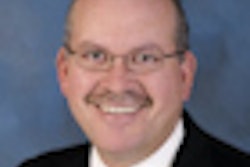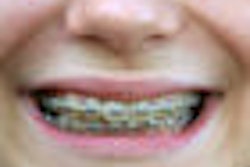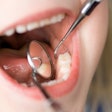The Smile for a Lifetime Foundation, an orthodontic organization established in October 2008 by Benjamin Burris, D.D.S., M.D.S., of Jonesboro, AR, is gearing up to expand across the U.S., according to Dr. Burris.
Smile for a Lifetime provides braces for individuals who have financial challenges and/or special circumstances.
"I started practicing in northeast Arkansas in 2004, and I kept running into people from some of the smaller towns who have social and physical handicaps related to their mouths and teeth," Dr. Burris said. "I did a lot of pro bono work, but my wife and I wanted to formalize this to create a process where people could apply for these kinds of services. We want to fill the gap between Medicaid and those who simply can't afford to pay for this kind of care."
The foundation's board of directors -- comprising Dr. Burris, another orthodontist, a hygienist, and local some bankers and lawyers -- meets every two to three months to review the applications they've received, rating the cases on financial need, orthodontic need, and special situations. Financial support comes from Founding Members, which each donate $10,000; there are two so far, according to Dr. Burris.
"I put up most of the seed money, and we are actively soliciting additional Founding Members," he said. "Plus, we were fortunate to have a year's supply of braces donated by GAC."
The foundation's first two patients -- two high school students from Arkansas -- received their braces in December, according to Dr. Burris. Now the board is gearing up to meet again to begin the selection process for the next round of candidates. Dr. Burris will provide orthodontic screenings for the top 10-12 applications, and six of those candidates will go on to receive braces.
In addition, Dr. Burris said he is in discussions with the Schulman Study Group, a group of 125 orthodontists from across North America, to take Smile for a Lifetime across the U.S..
"We are working with the Schulman Study Group, a national group of orthodontists, to establish an alliance that will advance the goodwill associated with the Smile for a Lifetime Foundation," he said. "I see us being able to treat 100, even 1,000, cases a year once we are up and running."
The big difference with Smile for a Lifetime's approach, Dr. Burris added, is local control. Each area, each orthodontist will form its own board of directors that will take applications from candidates in their area and decide who they are going to treat.
"I think it is our responsibility to give back, and most people [in this profession] do," Dr. Burris said. "This is just a way to formalize it."
For more information about Smile for a Lifetime, go to www.smileforalifetimefoundation.com.



















